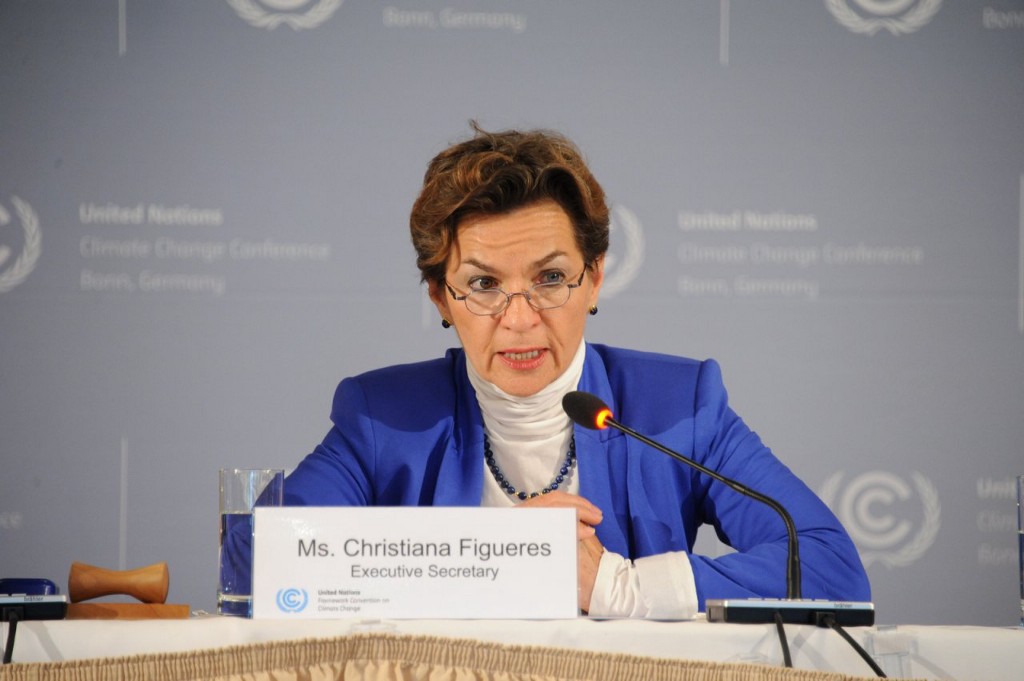Many of the goals in the Paris climate agreement target the year 2030. But to reach them, we need to make a big dent in carbon emissions by 2020.
That’s the year greenhouse gas emissions should begin dropping to keep global temperature rises below two degrees Celsius.
Carbon emissions have leveled off in recent years, but the current rate of 41 gigatons a year could exhaust the world’s carbon budget in as little as four years.
Once the budget is exhausted, emissions must drop immediately to zero or “temperature goals set in Paris become almost unattainable,” says Christiana Figueres, who led the UN’s efforts to reach the global climate deal.
To avoid such a “jump to distress,” Figueres is leading “Mission 2020” to rally greenhouse gas reductions ahead of 2020, and to elevate the issue at the upcoming G20 meeting in Hamburg Mission 2020 has identified six key goals that the world should work towards in the next three years:
- Energy. Renewables should comprise 30% of the world’s electricity supply, from about 24% in 2015. Coal power plants should start phasing out.
- Infrastructure. Cities should upgrade at least 3% of their building stock to zero- or near-zero emissions each year, and be fully decarbonized by 2050.
- Transport. Electric vehicles should comprise 15% or more of new car sales, up from 1% today. Mass transit usage should double. Vehicle fuel efficiency needs to improve by 20%, as does greenhouse gas emissions from air travel.
- Land. Newly created forests and reforestation represent a “carbon sink” to push net global emissions closer to zero between 2020 and 2030.
- Industry. Heavy industries like iron and steel, cement, chemicals, and oil, which are responsible for 20% of global CO2 emissions need to halve emissions by 2050.
- Finance. Green bond issuances in 2020 should be 10x the $81 billion issued in 2016. The financial sector should mobilize at least $1 trillion a year for climate action.
Figueres and her colleagues at Mission 2020 acknowledge that the targets are “idealistic.” Reaching them starts with science-driven policymaking (yes, you, Washington); rapid scaling of existing and new solutions; and… optimism.
“We must remember that impossible is not a fact,” Figureres says. “It’s an attitude.”











